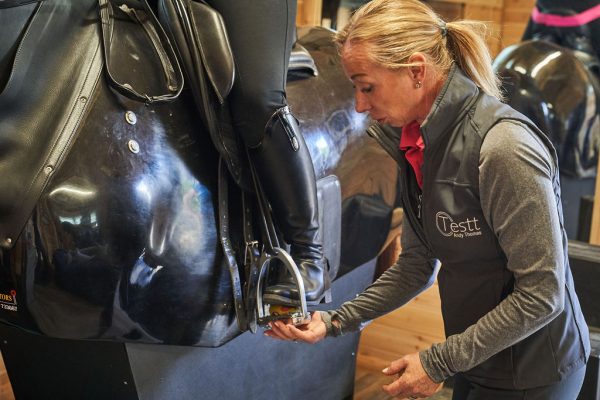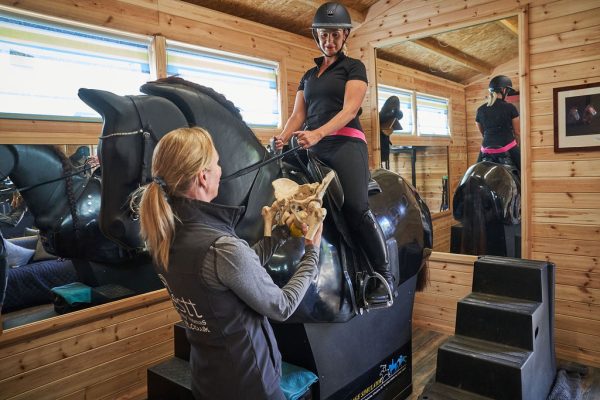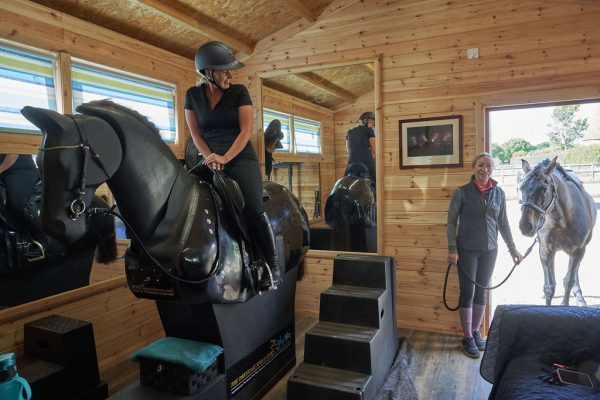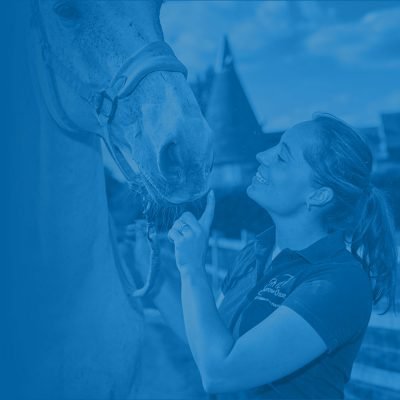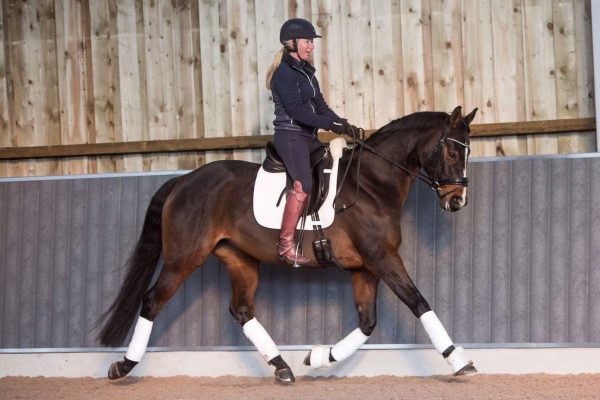At a time when horse welfare is firmly in the spotlight, having lessons on an equestrian simulator makes so much sense. Rather than rely on new-fangled artificial aids and gimmicks, Nicola suggests that now more than ever we owe it to our horses to ride to the best of our ability to ensure their comfort and wellbeing. Learning to sit lightly, being more balanced, having softer hands, communicating without tension, these are just some of the improvements that training with Hoggy will deliver – which will make for a happier riding experience on a live horse!
Many riders suspect that there is a good chance that they are not sitting correctly, that maybe their weight is shifting to one side more than the other and / or that they don’t have equal strength on both the left and right side of their body. Lessons on Hoggy will instantly detect these issues and with Nicola’s expert guidance and experience with rider asymmetry, the rider will learn to fully understand their own asymmetry and how important it is to work away from the horse to improve this. By adjusting their position the rider can look forward to a more harmonious partnership with their horse.
Similarly, riders looking to bring on a youngster need to be teaching their horses correctly from the get-go, so making sure that the rider’s body is appropriately aligned and does not unbalance the horse is key, as is the accurate and kind application of the aids.
Competition riders of all levels right up to and including Grand Prix dressage riders have benefitted from training with Nicola and Hoggy. For riders keen to up the ante in the run-up to the season ahead, building Hoggy-based training into their schedule can deliver improved fitness, stamina and performance.
Also, let’s not forget situations where the relationship between horse and rider is being eroded, largely because of a breakdown in communication. Taking a closer look at the rider’s actions can often provide clues as to why a horse is behaving in a certain manner. And of course, being equipped with the renewed knowledge of how you should be riding, is a real confidence booster and a new ‘I can do it’ attitude.

